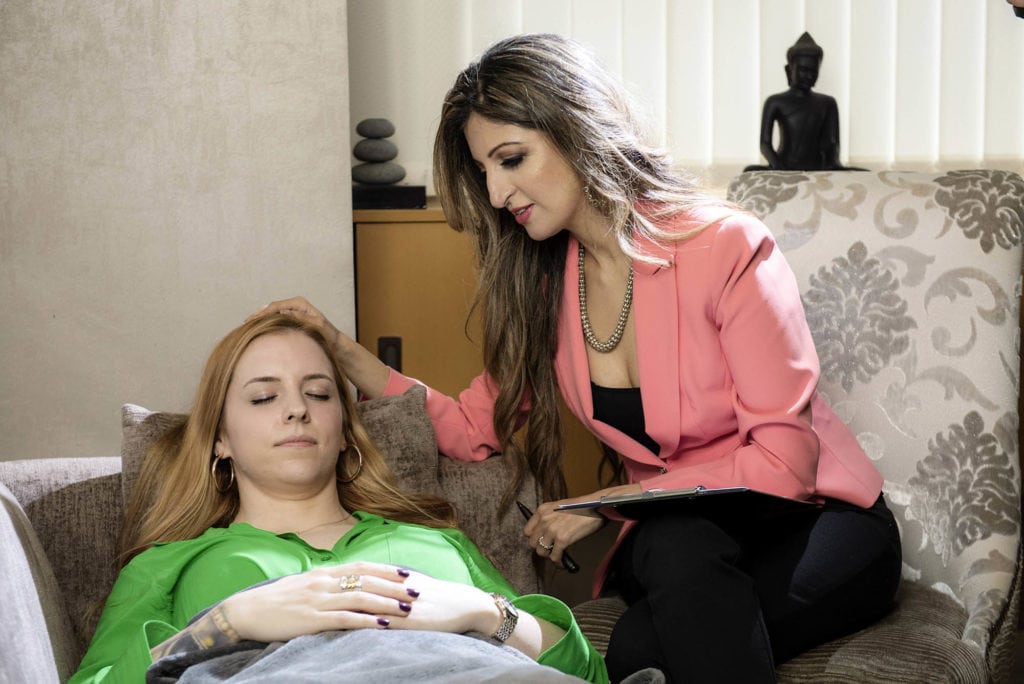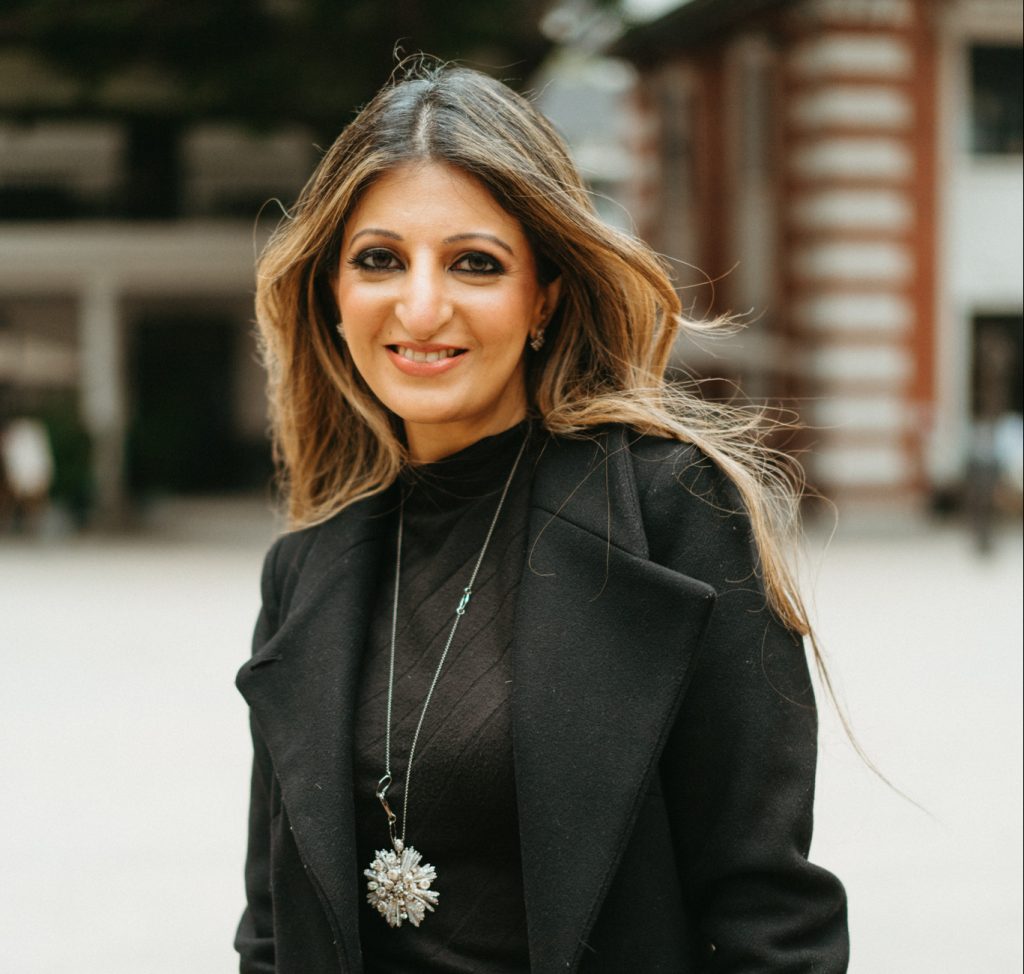Parenting during the pandemic has been stressful for many families. From online classes to a lack of socialisation, children and parents have faced an unprecedented situation that has urged the need to adapt. It’s a time now, more than ever, for conscious parenting to take centre stage to guide and nurture one’s child during this difficult period. Founder of Compare Retreats Dervla Louli Musgrave speaks to clinical hypnotherapist, life coach and founder of All About You Wellness Centre’s Sonia Samtani on the benefits of conscious parenting and how to implement her tips throughout the pandemic.

What is conscious parenting? To be conscious is to be aware. Hence conscious parenting is about being aware of why you are doing what you are doing in how you guide and nurture your children. Conscious parenting is moving away from having one-way conversations with your child where you tell them what to do and give them rules for behaviour. It’s about moving towards understanding your child, getting to know their motivators and educating them about choice and consequence.
The fundamental understanding of a conscious parent is that their role is to guide, nurture and provide safety for the child while knowing that they are not 100% in control. The conscious parent allows their child to fail and knows it’s a part of life. They set up realistic expectations of life. It will instil the message that their child is deserving of love without them needing to perform for it.
Basically, the role of a conscious parent is similar to the role of a gardener. A gardener fertilises and nurtures their plants. They have the understanding that each plant is its own entity and will take its own time to grow into what it’s meant to be. The gardener doesn’t know what the plant will eventually look like. They cannot control the height or how many fruits it will produce. Similarly, the conscious parent understands they cannot control the child or determine what they will be. It’s something they will both discover as their child grows.
See also: Nike Master Trainer Utah Lee On How To Stay Fit & Motivated In Lockdown
The conscious parent understands the differing needs of the child at various stages of development. They allow the child to individuate and become autonomous without being controlling or needy. The child will go through stages of development, starting with being completely dependent on the parents to survive as a baby. Then, it’s about beginning to separate and push back as they discover their own identity. Eventually, they become independent. If parents can transition through these roles from being responsible for their baby to a loving guide to their child, and finally a friend to their teenager, they are setting the scene for their child to transition into a functional adult.

What positive benefits does the conscious parenting approach have for parents and children? The conscious parenting approach encourages children to be autonomous, with the understanding that they are loved and accepted. It sets the foundation for producing healthy adults in the next generation who operate with maturity and wisdom instead of creating sabotaging patterns that arise from feeling unaccepted or unsafe.
The children of conscious parents know how to differentiate between feedback about their behaviour without making it mean there’s something wrong with them. Both parents and children are able to be with the dark and light sides of life without losing their sense of grounding. As a result, there is freedom of expression and a high level of self-esteem. Children are set up to be industrious and driven towards their goals, without being defined by them. The benefit for parents is that they will have a healthier relationship with their children, more rapport in the family, open communication and more peace in general.
See also: The Best Healthy Hong Kong Takeouts & Deliveries To Try Right Now
How has the pandemic affected parenting? The pandemic has changed what ‘normal life’ looks like, without any warning, expectation or reference point. It requires a lot more awareness to stay present and adapt to the changes, and previous coping mechanisms aren’t working anymore. Previously, there was an expectation that when children reach a certain age, their education would be outsourced to schools, there would be extracurricular activities and socialising with others would be a part of life.

Now suddenly, all that has changed and people don’t know what to do. There is no experience that they can draw upon, going back generations! As a result of this uncertainty, it is natural to feel triggered and off-centred. Unfortunately, when that happens, many parents don’t have the time, space or tools to process their emotions. So they have outbursts and later feel guilty about it. I have seen many parents breaking down at the thought of home-schooling. Plus, they wish that their children could experience the childhood that they had. Also, many children are throwing more tantrums as they are unable to express how they feel. They have pent up energy and it’s been hard for them to function without the same social interaction. All this leads to mental stress and impacts how much people can parent with awareness.
On the positive side, I guess we can say that it’s an opportunity for accelerated healing. It requires parents to be even more diligent in addressing their own triggers and wounds before they communicate to their children.
See also: Emerald & Tiger Founder Jasmin Harsono On Finding Harmony Through Reiki
Why do children have tantrums and how can they be calmed consciously? Children’s tantrums usually come from a need to be seen and heard. This doesn’t mean you need to succumb, most of the time you just need to indicate that you have seen them and heard them. If the child is very young and in the middle of a tantrum, there is no space for logic at that time.
You pretty much need the child to ride it out and go through the process (as painful as it is to watch), and when it’s over check with the child what it is they really needed. If your child is older and can communicate, they are usually looking for acknowledgement in some way. If you’ve ever nagged at someone or poked them, you would realise that what you needed was their attention and reassurance, and if you got it you would probably stop.

Most children feel loved by being seen, heard, hugged and acknowledged. Discover your child’s love language and you will discover that the more you use them, the more infrequent these tantrums will be. If you are thinking “I will give my child so much love and raise them with so much awareness that they will never throw a tantrum”, think again! This is also a natural stage of development where the child is learning to separate and going through many neurological and physical changes. Your understanding can definitely make this experience easier for both parties.
See also: The Relationship Between Energetic Alchemy & Sexual Wellness
What are five conscious parenting tips that are easy to implement?
- Understand that children learn more from their experience than yours. Instead of telling your young child not to touch a shiny object like a knife because it can hurt you, allow them to run their finger on a plastic knife, and experience the difference in the edges for themselves. For an older child, instead of telling them not to do what they want, you can talk them through the impact of doing it and be curious to see how they feel when they face the consequences. Sometimes this can mean allowing your child to go through pain of failure and rejection. This allows them to discover their own inner-resources to deal with it. You cannot take away pain from your child, but you can be there to hold your child as they face it.
- Introduce choice and consequence. Talk to your child as if they are capable of being aware of the consequences of their actions. You can hold them responsible for it in a loving way. Instead of saying don’t sleep late, let them know what will happen if they do and if they don’t.
- Ask more questions and give feedback on your child’s behaviour rather than making bold statements about their identity. Saying things like “you are careless” is about the child. Whereas asking the child “did you see the bottle on the floor when you were running?” is about their behaviour.
- Speak in the positive. Say what you do want to encourage rather than saying what you don’t want. We cannot think in the negative. An instruction like “don’t watch TV” needs us to picture a TV to even understand it. And by then we are already thinking about it! Say what alternative behaviour you would like your child to do instead.
- Understand that deep inside, your child’s behaviour is to seek acceptance. If your child feels loved and accepted, they will be able to be centred through life’s ups and downs. Treat success and failure both as parts of life. But without insinuating that they need to strive only to be successful and happy. Allow your child to fail, to make mistakes and to feel rejection. Show them that you still love them through all these experiences too.

What workshops and courses do you have coming up on conscious parenting? Our upcoming Conscious Parenting Workshop is on June 3rd from 2pm to 5pm. Other workshops that contribute to parenting and understanding life would be the Be Your Own Master curriculum. This gives you a thorough understanding of how your mind works, how we develop and how issues arrive. It equips you with simple and empowering tools to move to self-acceptance.



